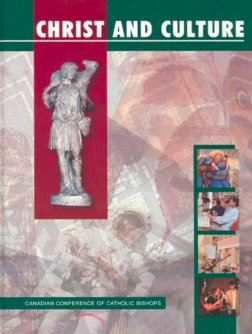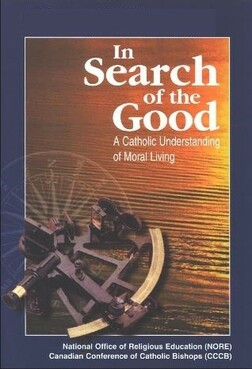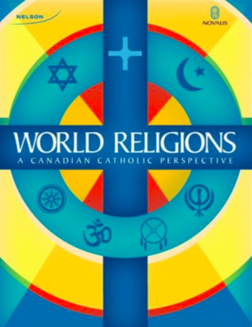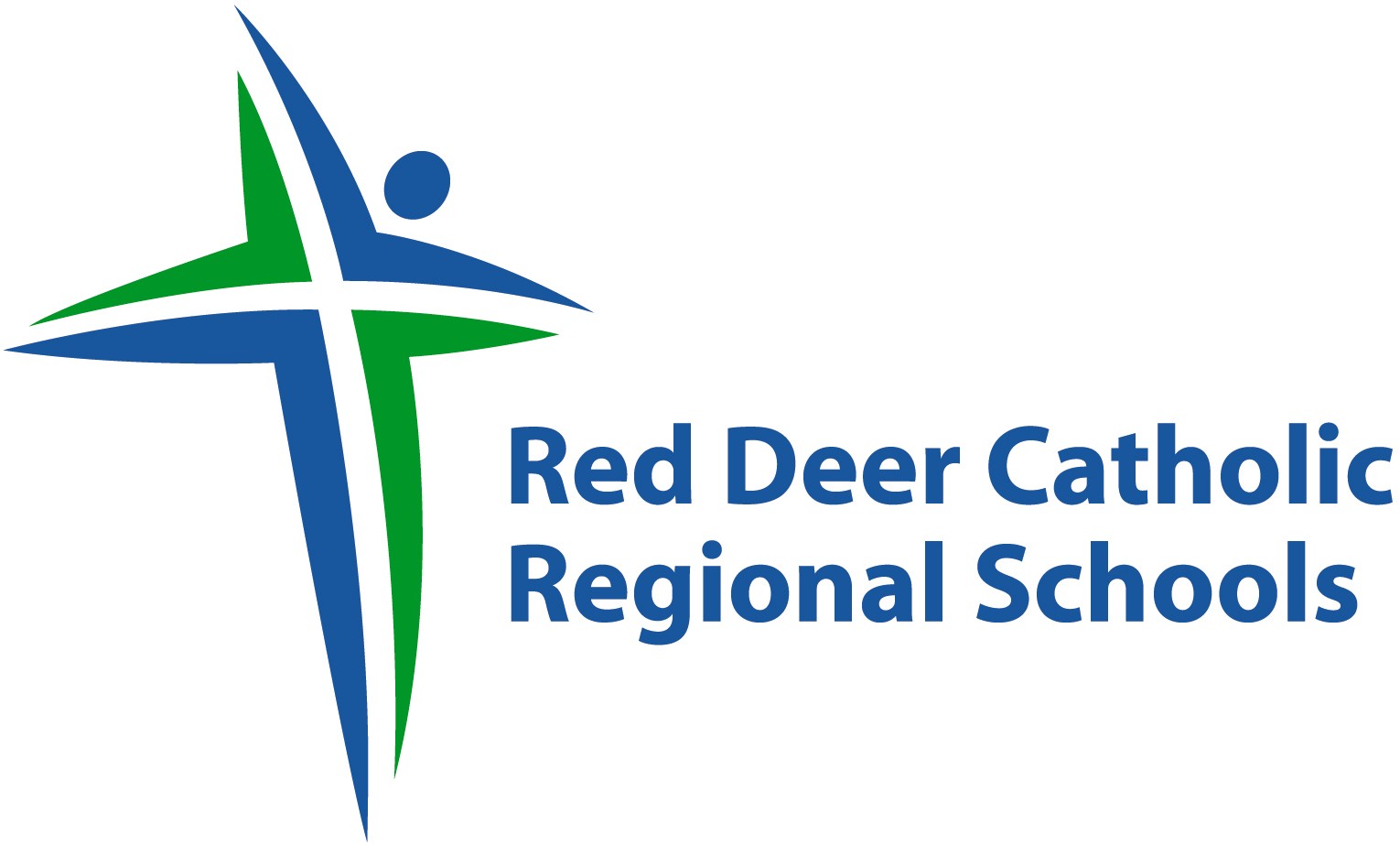High School (Grade10-12)
Religious education is an essential and integral part of the life and culture of a Catholic school. Through religious education, students are invited to develop the knowledge, beliefs, skills, values and attitudes needed to build a relationship with God and community through the person of Jesus Christ.
Within the context of a Catholic high school, the program of studies in all of its aspects—content, teaching process, and total school environment—reflects the values of faith, hope, charity, forgiveness and justice as found in the Gospels and the message of Jesus Christ as understood by the Catholic Church.
In Catholic high schools, there are many opportunities for integrating Gospel values and nurturing the presence of God in our midst within the curriculum. Teachers will determine where religious values and Church teaching can be integrated within each course.
Religious education shares the same goals and objectives set forth for all good education; that is, the growth and development of the whole person in all his or her dimensions—physical, intellectual, emotional, social and spiritual.
Religious Studies – Roman Catholic (2019) 15: Christ and Culture

This course uses the text, Christ and Culture which was approved by the Canadian Conference of Catholic Bishops.
The principal aim of Christ and Culture is to assist students, with the help of the Gospel, to participate as Christians in the shaping of our culture. The program explores major cultural issues from a Christological perspective. Beginning with their own life experiences, students acquire a deeper and more systematic knowledge of themselves, Christ's message, and the Church. Connections between the Church and contemporary culture are explored in terms of what it means to be a responsible adolescent developing as a member of a Catholic, Christian community while living within the context of a broader culture. For 20% of the course students will study how the stories, signs, symbols, and rituals from other World Religions and Canada’s indigenous communities have influenced cultures both in Canada and throughout the world.
In the Religious Studies – Roman Catholic (2019) 15 course, students will:
- Students identify what creation stories from a variety of World Religions and Church teachings reveal about what it means to be human (World Religions)
- Students explain the dynamic nature of culture, the need for adaptability and optimism, and our role as agents within culture.
- Students learn how the signs, symbols and rituals of various World Religions and Canada's FNMI communities influence culture. (World Religions)
- Students study the impact that faith had on Hebrew culture and rituals, as well as the impact that faith in Christ, and the God who Jesus reveals, should have on culture. (World Religions)
- Students explain ideas about and challenges that arise when examining relationships with self, others, and God as presented both in culture and from a Catholic perspective.
- FIVE CREDITS ONLY: Students recognize that Christians are called to relate to the world as disciples and witnesses.
- Students interpret and experience humility and open-mindedness through active participation in the prayer life of the Eucharistic community.
- FIVE CREDITS ONLY: Students identify Scripture and Tradition as the primary sources of Christian belief.
For more about Religious Studies – Roman Catholic (2019) 15, contact your teen’s teacher.
Religious Studies – Roman Catholic (2019) 25: Jesus Christ: God’s Gift of Salvation
Jesus Christ: God's Gift of Salvation invites students to deepen their relationship with Jesus through a study of Scripture. Students will explore the Jewish historical, religious, and cultural world into which the Messiah was born, and the Old Testament covenant fulfilled. Using the Gospels as primary sources, the course explores Jesus' birth, early life, and ministry; his preaching of the Kingdom of God; his special teachings, particularly the parables; and his miracles. It then focuses on the scriptural accounts of his death and Resurrection, and the Ascension, and their central significance for the church’s understanding of Jesus as the Christ, the Son of God. In addition to the study of the history of the Jewish faith, students will study salvation doctrines of other World Religions, as well as the way that contemporary Christians (both Catholic and from other Christian traditions) cooperate to total 20% of the course.
In the Religious Studies – Roman Catholic (2019) 25 course, students will:
- Students study the history of Judaism as a foundation of Christianity while demonstrating respect, empathy and compassion for the history of the Jewish people. (World Religions)
- Students know the Christian response to Jesus' question: "Who do people say I am?"
- Students study the salvation doctrine of other World Religions. (World Religions)
- Students investigate the ministry and core teachings of Jesus and their implications for Christian life through a study of the gospels.
- Students explain ways contemporary Christians, from Catholic and other Christian denominations, cooperate in bringing about the Reign of God. (World Religions)
- Students study the many ways Catholic pray using Scripture.
- FIVE CREDITS ONLY: Students learn about St. Paul's life, missionary journeys, and his’ letters.
- FIVE CREDITS ONLY: Students analyze how the church developed and expanded following the Apostolic Era.
For more about Religious Studies – Roman Catholic (2019) 25, contact your teen’s teacher.
Religious Studies – Roman Catholic (2019) 35: In Search of the Good

In Search of the Good challenges students to understand themselves as moral persons called to discipleship by living the way of Christ. Through an examination of ethical theories, the revelation of Sacred Scripture, and the lived experience and teaching of the Catholic Church, the course invites students to mature as active participants in their faith. At the heart of catechesis is the human search for happiness as the completion of the superabundant love of God. The same tension which exists between the revelation of God's love and the explorations of human reason are worked out in the areas of freedom, justice, human relations, ecology, reconciliation, life in community and political life. For 20% of the course, students will learn how other World Religions understand their own sacred texts as guides to moral living, plus how they approach current moral issues.
In the Religious Studies – Roman Catholic (2019) 35 course, students will:
- Students know themselves through critical thinking and personal discovery as moral persons invited to live the way of Christ through an examination of ethical theories.
- Students study the self-revelation of God through the interpretation of Exodus and the prophetic call narratives.
- Students recognize revelation and the Tradition of the Catholic Church as a guide to moral living.
- Students investigate and respect how other World Religions understand their sacred texts as guides to moral living. (World Religions)
- Students analyze the spiritual dimensions of relationships, marriage, and family life.
- Students investigate how other World Religions approach current moral issues. (World Religions)
- FIVE CREDITS ONLY: Students identify through prayerful reflection what contributes to happiness and the good life.
- FIVE CREDITS ONLY: Students recognize the nature of human freedom, both as individuals and as members of their community.
For more about Religious Studies – Roman Catholic (2019) 35, contact your teen’s teacher.
Religions of the World 35: World Religions: A Canadian Catholic Perspective

World Religions: A Canadian Catholic Perspective is written as a Catholic encounter with other religions of the world. The program, and its resource, provides students with information about the beliefs and practices of Christian denominations and non-Christian religions, but it approaches these traditions from the perspective of one who is a faithful member of the Catholic Church. At the same time, it takes into consideration that students are on a personal journey of faith and that they are at different places in their journey. Although the program, and its resource, honours and respects the integrity of other religions, as required by the Catholic tradition, its primary aim is to catechize students in the Catholic faith.
In the Religions of the World 35 course:
- Students will be nurtured in the Catholic faith as they deepen their understanding that all religions are a communal search for truth and relationship with the Divine.
- Students will grow in understanding of the historical development, central beliefs and practices, prayer rituals, symbols, sacred writings, family traditions and moral guidelines associated with various religions.
- Students will compare the importance of sacred space, worship and prayer within various religious traditions.
- Students will demonstrate an understanding of moral norms as a natural expression of faith that shapes human behaviour.
- Students will participate in a variety of prayer ritual experiences.
- Students will describe the relationship of religious moral precepts to social responsibility, and offer opportunities to participate in activities promoting peace, justice and the betterment of society in general.
- Students will grow in the ability to respond to the challenges of living in societies with religious pluralism, identifying movements, trends and beliefs within modern times and their impact on religion.
- Students will recognize proclamation and dialogue as two dimensions of the Catholic Church’s evangelizing mission.
- Students will acknowledge the need to respect peoples of all religions and cultures, accepting interreligious dialogue as an opportunity to be enriched by each other and not as a cause for division.
- Students will develop the knowledge and skills necessary for research and effectively communicating their findings.
For more about Religions of the World 35, contact your teen’s teacher.
